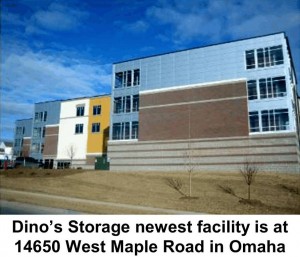It’s a good time to be in the storage unit business: Rents are rising, vacancies are limited and competition has been muted due to limited new construction, The Wall Street Journal reports.
 Storage unit companies are finding business is booming at a time when other commercial real estate sectors are still mostly flat. Investors are buying up shares in storage unit companies too; Extra Space Storage Inc. saw its stock rise 33 percent in the past year. The Salt Lake City-based company reports that 94.5 percent of its space was occupied at the end of the second quarter, up from 92.1 percent one year prior. Public Storage, which is the largest publicly-traded storage firm, reported a 7 percent increase in rental income year-over-year.
Storage unit companies are finding business is booming at a time when other commercial real estate sectors are still mostly flat. Investors are buying up shares in storage unit companies too; Extra Space Storage Inc. saw its stock rise 33 percent in the past year. The Salt Lake City-based company reports that 94.5 percent of its space was occupied at the end of the second quarter, up from 92.1 percent one year prior. Public Storage, which is the largest publicly-traded storage firm, reported a 7 percent increase in rental income year-over-year.
The number of self-storage locations in the United States is more than triple the number of McDonald’s outlets. Seeing opportunity, some investment firms are rushing to complete new projects, although storage facilities tend to take years to build. For example, Carlyle Group LP is spending $80 million to build new facilities in Southern California, the Pacific Northwest and elsewhere.
The industry’s stability may be thanks to the fact that storage space is in demand in good times and bad. Some in the industry use the 4Ds – death, divorce, downsizing and dislocation – as reasons consumers might utilize their services. Because these events aren’t necessarily tied to the economic cycle, the industry “isn’t recession-proof, but it is recession-resistant,” says Ryan Burke, an analyst at real-estate research firm Green Street Advisors.
Analysts said storage can be a good long-term business because once people rent storage units, they are unlikely to move to a different facility even if the rent is slightly lower, and they tend to keep the units longer than they anticipated.
Dino’s Storage owns facilities in Omaha, Bellevue, Papillion and Elkhorn, Nebraska, Bondurant and Des Moines, Iowa, and Winnipeg, Manitoba.